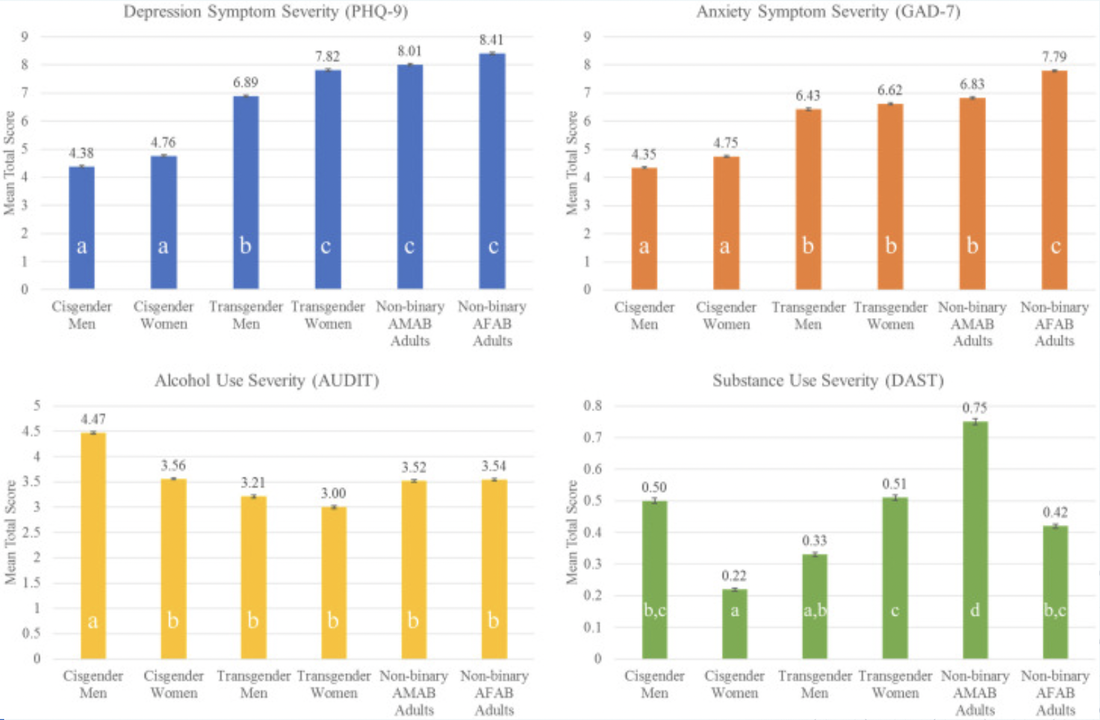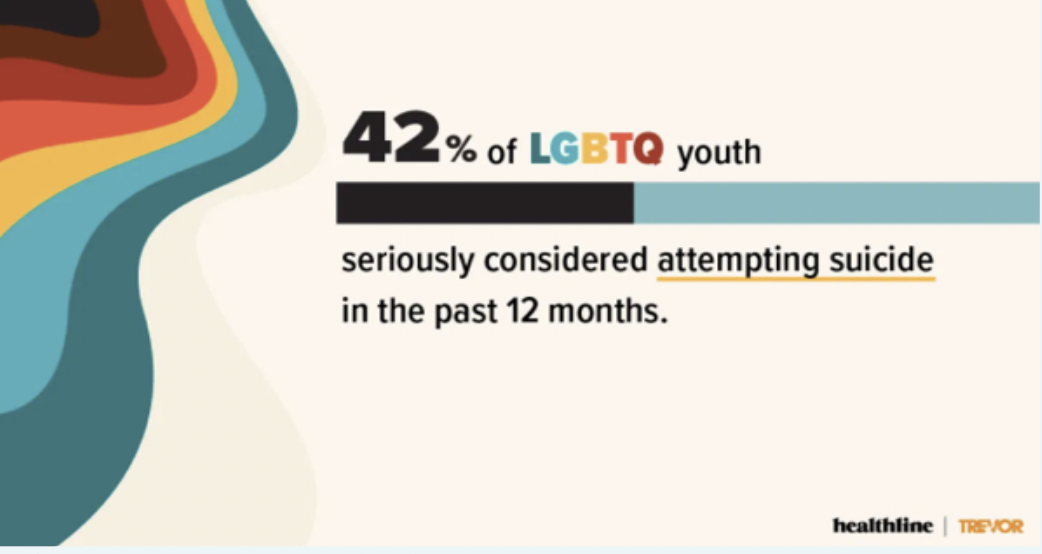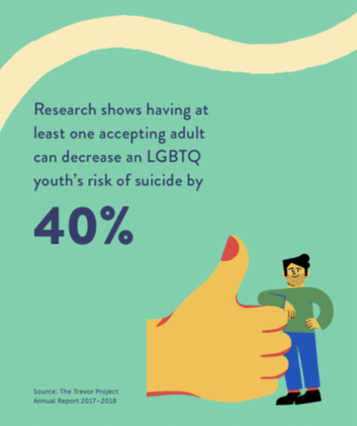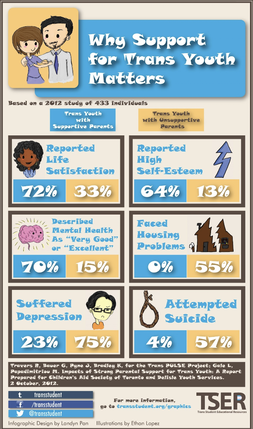If in need of immediate assistance please call 911 or the UHS Crisis Line (608-265-5600, Option 9).
LGBTQ+/LGBTQIA+
LGBTQIA+ is an inclusive term that includes people of all genders and sexualities, such as lesbian, gay, bisexual, transgender, questioning, queer, intersex, asexual, pansexual, and allies. While each letter in LGBTQIA+ stands for a specific group of people, the term encompasses the entire spectrum of gender fluidity and sexual identities.
LGBTQIA+ is an inclusive term that includes people of all genders and sexualities, such as lesbian, gay, bisexual, transgender, questioning, queer, intersex, asexual, pansexual, and allies. While each letter in LGBTQIA+ stands for a specific group of people, the term encompasses the entire spectrum of gender fluidity and sexual identities.
LGBTQIA+ RESOURCES
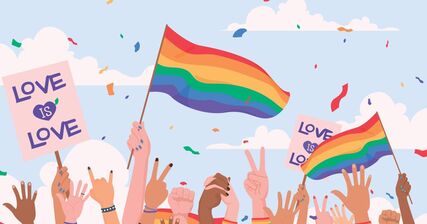
Resources
NAMI Dane County LGBTQIA+ Support Group
NAMI Wisconsin LGBTQ+ Mental Health Resources
Trans Lifeline
LGBT National Youth Talkline - 1-800-246-7743
TrevorLifeline & TrevorText
GLBT National Hotline - 1-888-843-4564
LGBTQ+ Sexual Health Education Resources
It Gets Better – Hope for LGBTQ+
National Queer and Trans Therapists of Color Network
Podcast: Recovery in the LGBTQ Community
NAMI Dane County LGBTQIA+ Support Group
NAMI Wisconsin LGBTQ+ Mental Health Resources
Trans Lifeline
LGBT National Youth Talkline - 1-800-246-7743
TrevorLifeline & TrevorText
GLBT National Hotline - 1-888-843-4564
LGBTQ+ Sexual Health Education Resources
It Gets Better – Hope for LGBTQ+
National Queer and Trans Therapists of Color Network
Podcast: Recovery in the LGBTQ Community
Be an LGBTQIA+ Ally!
An Ally’s Guide to Terminology
You Matter: How to Be a Straight Ally
Talking About LGBT Issues
Unpacking the Invisible Knapsack II: Straight and Cisgender Privilege
LGBTQIA+ Resource Center Glossary
An Ally’s Guide to Terminology
You Matter: How to Be a Straight Ally
Talking About LGBT Issues
Unpacking the Invisible Knapsack II: Straight and Cisgender Privilege
LGBTQIA+ Resource Center Glossary
|
LGBTQIA+ youth are not inherently prone to mental illness of suicide risk because of their sexual orientation or gender identity but rather placed at higher risk because of how they are mistreated and stigmatized in society.
|
A study collected data from 2015 to 2018 about depression, anxiety, alcohol use, & other substance use and conducted a severity of self comparison across cisgender, transgender, and non- binary participant groups. Overall, researchers found significant results that indicated higher levels of anxiety and depression among transgender and non-binary individuals when compared to cisgender individuals (Stanton et al., 2021).
|
According to the Trevor Project:
★ LGBTQ youth are more than four times as likely to attempt suicide than their peers (Johns et al., 2019; Johns et al., 2020).
★ The Trevor Project estimates that more than 1.8 million LGBTQ youth (13-24) seriously consider suicide each year in the U.S. — and at least one attempts suicide every 45 seconds.
★ The Trevor Project’s 2022 National Survey on LGBTQ Youth Mental Health found that 45% of LGBTQ youth seriously considered attempting suicide in the past year, including more than half of transgender and nonbinary youth.
★ LGBTQ youth are more than four times as likely to attempt suicide than their peers (Johns et al., 2019; Johns et al., 2020).
★ The Trevor Project estimates that more than 1.8 million LGBTQ youth (13-24) seriously consider suicide each year in the U.S. — and at least one attempts suicide every 45 seconds.
★ The Trevor Project’s 2022 National Survey on LGBTQ Youth Mental Health found that 45% of LGBTQ youth seriously considered attempting suicide in the past year, including more than half of transgender and nonbinary youth.
PROVIDING SUPPORT MAKES A DIFFERENCE!
LGBTQIA+ individuals face unique challenges that can negatively impact their mental health and put them at an higher risk for mental illness, such as discrimination and stigma, social isolation, minority stress and lack of access to sufficient healthcare.
Providing support to LGBTQIA+ individuals can help to reduce these risk factors and promote mental health and well-being. Support can take many forms, including:
Providing support to LGBTQIA+ individuals can help to reduce these risk factors and promote mental health and well-being. Support can take many forms, including:
- Advocating for LGBTQIA+ rights and equality.
- Educating others about LGBTQIA+ issues and the importance of acceptance and inclusion.
- Creating safe spaces where LGBTQIA+ individuals can connect with others who share similar experiences.
- Providing mental health resources and services that are specifically designed for LGBTQIA+ individuals.
General Resources
Suicide Prevention Lifeline 988 or 1-800-273-8255
Crisis Textline 741741
American Foundation for Suicide Prevention
SAVE
Trevor Project
UHS 24 hour Crisis Line
Resources for Loss Survivors
Help After Suicide
Suicide Prevention Lifeline 988 or 1-800-273-8255
Crisis Textline 741741
American Foundation for Suicide Prevention
SAVE
Trevor Project
UHS 24 hour Crisis Line
Resources for Loss Survivors
Help After Suicide
If you have any additional resources or information you'd like us to add to this page, please email us at [email protected]!
